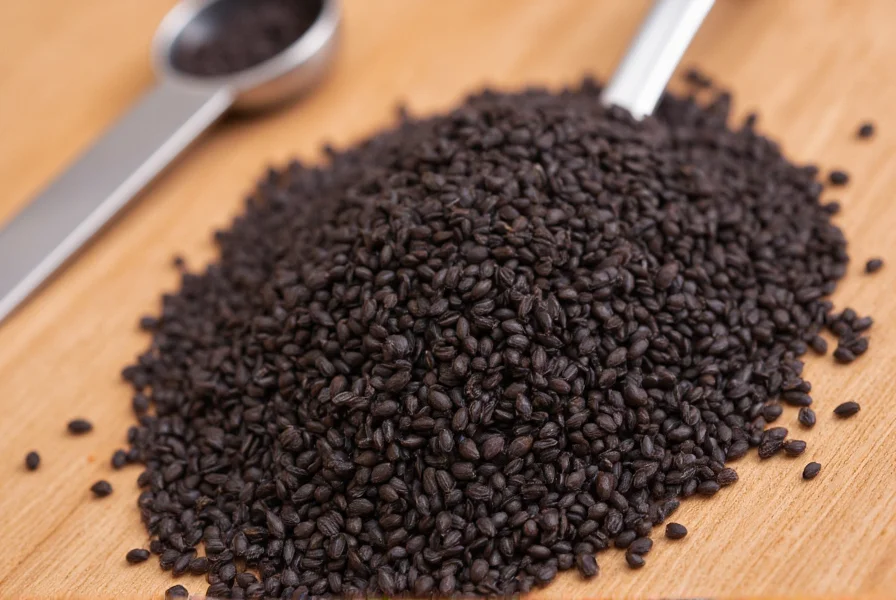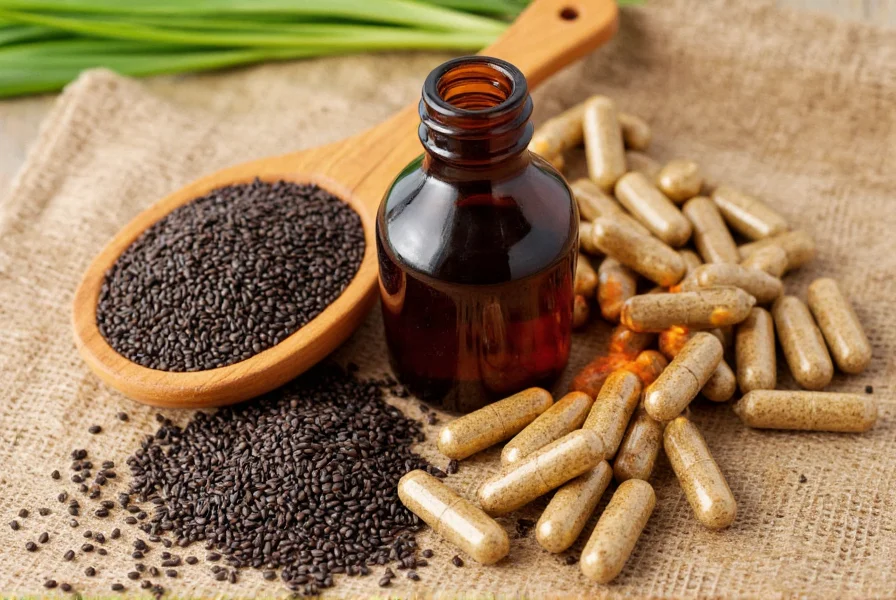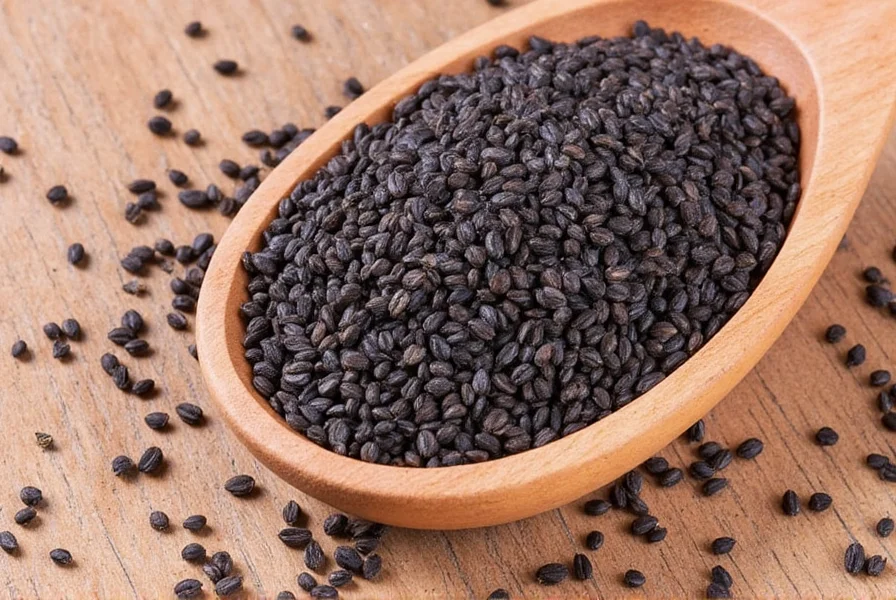For centuries, black cumin seed has been valued in traditional medicine systems across the Middle East, Asia, and Africa. Modern science is now investigating many of these traditional uses, revealing promising—but often preliminary—evidence about scientifically proven benefits of black cumin seed. This comprehensive review examines what current research actually supports about this ancient remedy.
What Exactly Is Black Cumin Seed?
Despite its name, black cumin seed (Nigella sativa) isn't related to regular cumin. Also called black seed, kalonji, or habbat al-barakah (blessed seed), these tiny black seeds come from an annual flowering plant native to Southwest Asia. The seeds contain over 100 bioactive compounds, with thymoquinone representing the most extensively studied component responsible for many potential health effects.

Scientifically Supported Health Benefits
While traditional medicine attributes numerous benefits to black cumin seed, scientific research has specifically investigated several key areas with varying levels of evidence.
Anti-Inflammatory Properties
Multiple laboratory and animal studies demonstrate that thymoquinone, the primary active compound in black cumin seed and inflammation, inhibits inflammatory pathways. A 2020 review in Phytotherapy Research analyzed 25 clinical trials and found consistent evidence that black seed oil reduces markers of inflammation like C-reactive protein, particularly in people with metabolic disorders. However, researchers noted that larger, longer-term human studies are needed to confirm optimal dosing and long-term effects.
Immune System Modulation
Research suggests black cumin seed may help regulate immune function rather than simply boost it. A 2022 study published in Immunology Letters found that black cumin seed oil for immune support enhanced certain immune cell activity while reducing excessive inflammatory responses. This dual action could explain its traditional use for both immune deficiency and autoimmune conditions, though human clinical evidence remains limited.
Skin Health Applications
Topical application of black seed oil shows promise for several skin conditions. A randomized controlled trial with 60 participants found that a 20% black seed oil cream significantly improved symptoms of hand eczema compared to placebo after eight weeks. Similarly, research published in Journal of Dermatological Treatment demonstrated that black seed oil benefits for skin including reduced acne lesions and improved skin hydration when applied topically twice daily.
| Health Benefit | Research Evidence Level | Key Findings |
|---|---|---|
| Anti-inflammatory effects | Moderate (human trials) | Reduces CRP and other inflammatory markers, especially in metabolic disorders |
| Immune modulation | Preliminary (lab and small human studies) | Enhances certain immune functions while reducing excessive inflammation |
| Skin health | Emerging (small clinical trials) | Shows promise for eczema, acne, and wound healing when applied topically |
| Respiratory support | Preliminary (small human studies) | May improve asthma symptoms and lung function in some individuals |
Respiratory Health Support
Traditional use of black cumin seed for respiratory conditions has some scientific backing. A clinical trial with 80 adults with mild asthma found that 500 mg of black seed oil twice daily significantly improved lung function and reduced asthma symptoms compared to placebo after four weeks. While promising, researchers emphasized that black cumin seed for respiratory health should complement—not replace—standard asthma treatments.
Metabolic Health Markers
Several studies suggest potential benefits for metabolic health. Research in Journal of Diabetes & Metabolic Disorders followed 90 participants with type 2 diabetes and found that those taking 2 grams of black seed powder daily showed greater improvements in fasting blood sugar and HbA1c levels than the control group after 12 weeks. However, the American Diabetes Association doesn't currently recommend black seed as a standard treatment due to insufficient evidence from large-scale trials.
Traditional Uses vs. Scientific Evidence
Many traditional claims about black cumin seed exceed current scientific evidence. While historical texts describe it as a remedy for over 65 different conditions, modern research supports only a subset of these applications. For example:
- Supported by research: Anti-inflammatory effects, certain skin applications, potential respiratory support
- Limited or preliminary evidence: Blood sugar regulation, cholesterol improvement, antimicrobial properties
- Unsupported or disproven: Cancer treatment, weight loss miracle, cure for viral infections like HIV or COVID-19
Understanding this distinction between traditional use and black cumin seed research studies is crucial for making informed decisions about its potential role in health maintenance.
How to Use Black Cumin Seed Safely
Black cumin seed is available in several forms, each with different considerations:
- Whole seeds: Can be chewed (1-2 grams daily) or used in cooking; mild flavor similar to oregano with slightly bitter notes
- Seed oil: Typically taken in doses of 1-3 mL daily; can be mixed with honey or warm water to improve taste
- Capsules: Standardized extracts often contain 5-21% thymoquinone; follow product instructions
- Topical application: Diluted seed oil (5-20% concentration) for skin conditions
For those exploring how to use black cumin seed for health, consistency matters more than high doses. Most studies showing benefits used moderate daily amounts over several weeks or months rather than occasional high doses.

Safety Considerations and Potential Side Effects
While generally safe for most people when used appropriately, potential side effects of black cumin seed include:
- Mild digestive upset (nausea, stomach discomfort) at higher doses
- Allergic skin reactions when applied topically
- Lowered blood pressure (caution for those on hypertension medication)
- Blood sugar lowering effects (caution for diabetics on medication)
Pregnant women should avoid medicinal amounts as high doses may stimulate uterine contractions. Always consult your healthcare provider before starting black cumin seed supplements, especially if you have medical conditions or take medications. Remember that is black cumin seed safe to use daily depends on individual health status and dosage.
Limitations of Current Research
Despite promising findings, significant limitations exist in the current body of research on black cumin seed:
- Many human studies have small sample sizes (fewer than 100 participants)
- Optimal dosage and formulation remain unclear
- Long-term safety data is limited
- Most research comes from regions where black cumin seed is traditionally used, raising questions about applicability to diverse populations
Researchers consistently call for larger, longer-term, multi-center clinical trials to establish more definitive conclusions about the therapeutic potential of black cumin seed.
Conclusion: A Promising Complementary Approach
Black cumin seed shows genuine promise as a complementary approach to supporting certain aspects of health, particularly regarding inflammation, immune function, and skin conditions. However, it's essential to maintain realistic expectations—this is not a miracle cure but rather a potential supportive element in a comprehensive health strategy. When considering benefits of black cumin seed, prioritize quality products from reputable sources, use appropriate dosages, and always discuss with your healthcare provider, especially if managing health conditions.
What is the most scientifically supported benefit of black cumin seed?
The most consistently supported benefit is its anti-inflammatory properties. Multiple studies show black cumin seed, particularly its active compound thymoquinone, reduces inflammatory markers like C-reactive protein. This effect appears most pronounced in people with metabolic disorders, though larger long-term studies are still needed.
How much black cumin seed should I take daily for health benefits?
Research suggests effective doses typically range from 1-3 grams of seeds or 1-3 mL of oil daily. Most clinical studies showing benefits used 1-2 grams of seed powder or 500 mg-1 gram of oil twice daily. However, optimal dosage varies based on the specific health concern and product formulation. Always start with lower doses to assess tolerance.
Can black cumin seed interact with medications?
Yes, black cumin seed may interact with certain medications. It can potentially enhance the effects of blood pressure medications (causing hypotension) and diabetes medications (causing hypoglycemia). It may also affect how the liver processes certain drugs. If you take prescription medications, consult your healthcare provider before using black cumin seed supplements regularly.
How long does it take to see benefits from black cumin seed?
Most studies showing measurable benefits used black cumin seed consistently for 8-12 weeks. Some people report noticing subtle changes in energy or digestion within 2-4 weeks, but significant effects on inflammation markers or chronic conditions typically require longer consistent use. Individual responses vary based on health status, dosage, and the specific benefit being sought.
Is there a difference between black cumin seed and regular cumin?
Yes, they are completely different plants. Black cumin seed (Nigella sativa) comes from the Ranunculaceae family, while regular cumin (Cuminum cyminum) belongs to the Apiaceae family. They have different appearances, flavors, and chemical compositions. Black cumin seed contains thymoquinone as its primary active compound, while regular cumin's main active components are cuminaldehyde and other terpenes.











 浙公网安备
33010002000092号
浙公网安备
33010002000092号 浙B2-20120091-4
浙B2-20120091-4